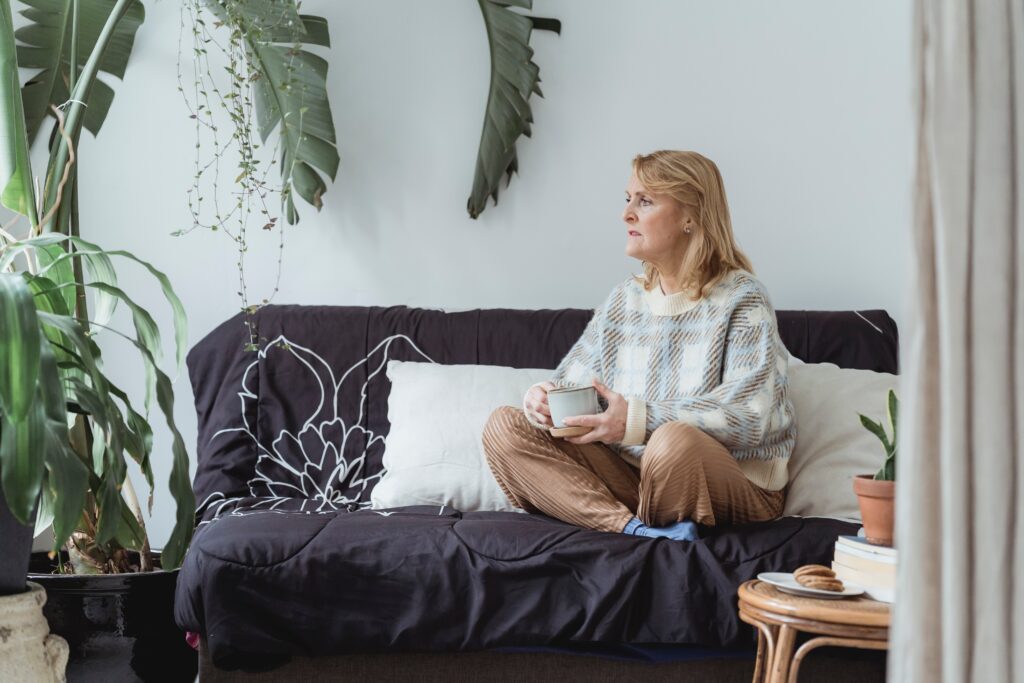Are you going through menopause and experiencing body pain? It is common for the body to feel stiff during menopause and you may experience joint pain, back pain and muscle pain, for example. Here you can learn more about joint aches and pains in menopause.
Joint aches during menopause
You put a lot of stress on your joints throughout your life. Therefore, as you get older, it is common for your joints to become more tired and weaker, increasing the risk of joint pain. Your joints are also closely connected to your muscles - which you may not use as much as you did when you were younger anymore. As the muscles provide support to your joints, the joints will be under more strain as the muscles become weaker.
During the menopause, joint pain can be particularly noticeable because the level of oestrogen in your body drops. Oestrogen is present in all body tissues and affects the whole body. This increases the risk of joint, muscle and back pain, which are common menopausal symptoms. Other than back pain, some people may also experience pain in other parts of the body - like foot pain or leg pain!
Want to read more about menopause symptoms? Read about sleep problems and hot flushes.
Osteoporosis in menopause
The lack of oestrogen during menopause also makes the breakdown of your bones extra fast. Oestrogen is important for building your bones and inhibiting the cells that break down bones. Women can therefore be affected by osteoporosis during the menopause. This means that your bones are 'porous', meaning they have weakened and are more likely to crack.
Treatment for joint pain in menopause
Although low oestrogen levels and joint pain may be linked, there are no studies showing that oestrogen treatment helps with joint pain. So to prevent joint pain, we recommend the old-fashioned way: good diet and exercise habits!
- Exercise and strength training: All movement is good for strengthening your joints and preventing osteoporosis - go for a walk or do an activity you enjoy! Since it is important that your muscles are strong to support your joints, it is also important to do strength training during the menopause.
- Eat more protein: It's no surprise that eating healthy is good for your overall health, even during menopause. To maintain bone and muscle strength, it is important to eat protein-rich foods, especially during the menopause when your muscles become weaker. You can get protein from meat, poultry, fish, eggs and legumes!
Stomach ache in menopause
As well as joint and muscle pain, you may also experience symptoms such as stomach pain during menopause. Some women may be sensitive to the major hormonal changes that occur during the menopause, which can cause stomach problems. Read more about stomach problems during the menopause here.

